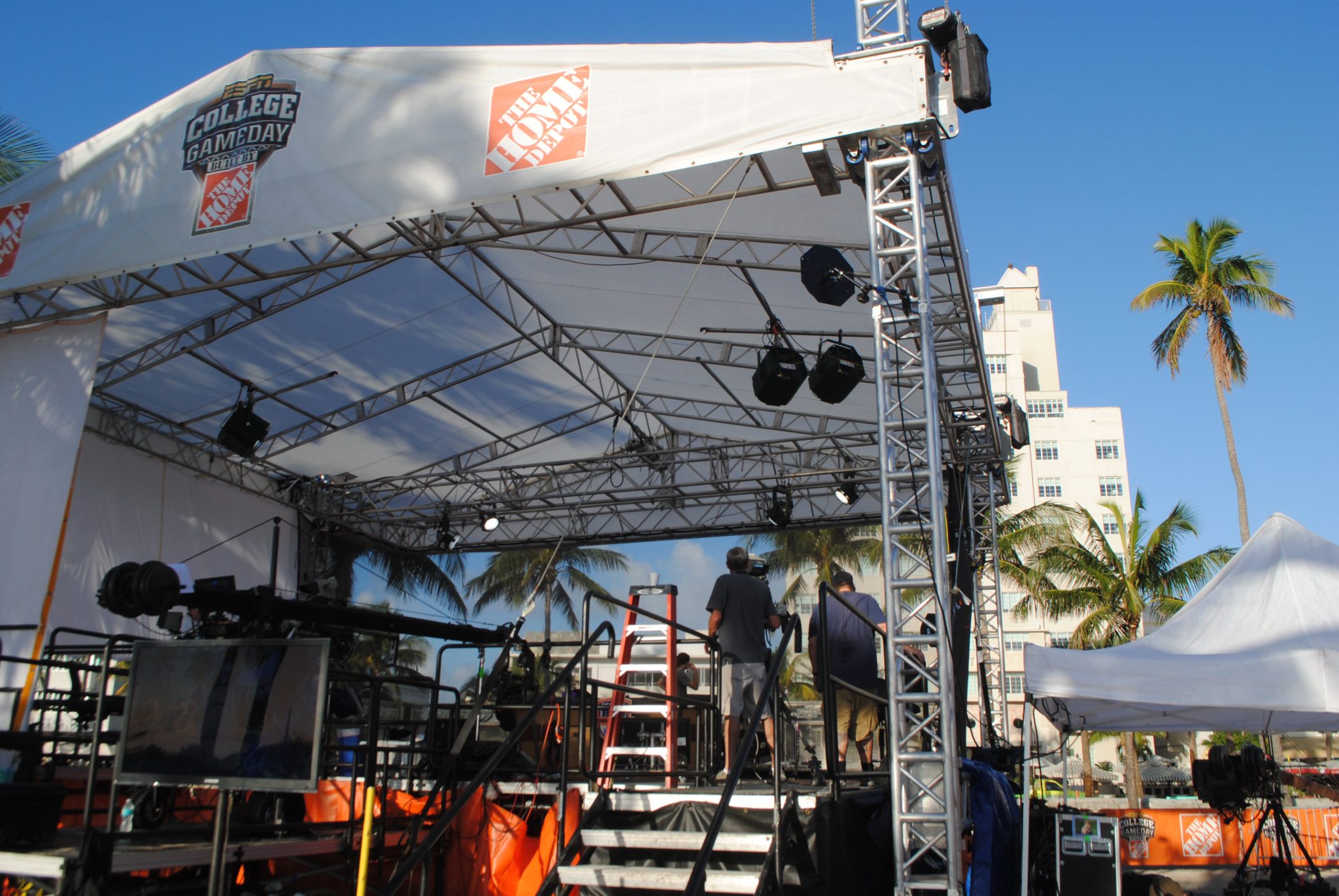Lighting is a fundamental element in any production, whether it’s film, television, theater, or live events. The way light interacts with a scene or performance can dramatically alter the audience’s perception and mood, making it a crucial tool in storytelling. Once a lighting plan has been developed by the lighting director, the next step is to ensure the plan is executed to perfection. This is where the expertise of a lighting technician becomes indispensable.
A lighting technician plays a vital role in any production crew. From positioning light sources to ensuring equipment safety, their responsibilities extend far beyond flipping switches or setting up stands. They must have technical expertise, creative problem-solving abilities, and an extensive understanding of safety protocols—especially when working with heavy and potentially hazardous equipment. In modern production environments, the role of lighting technicians has evolved, requiring a unique blend of technical know-how and artistry.
The Importance of Lighting Technicians in Production
Once the lighting director has established the technical set-up and design plan, it’s up to the lighting technician to bring that plan to life. Lighting technicians are responsible for ensuring that lights are positioned correctly, managing any technical equipment, and adjusting setups based on changing needs during the production. They are not only expected to be skilled in handling complex lighting rigs, but they must also have a strong understanding of how lighting interacts with the camera or audience’s viewpoint.
Lighting technicians work closely with a wide range of professionals in the production, from directors and cinematographers to set designers and actors. Their ability to collaborate and adapt to the needs of various team members is crucial to the success of a production. If something goes wrong or adjustments are needed on the fly, lighting technicians are the first to jump in with solutions.
Essential Skills for Lighting Technicians
Being a lighting technician isn’t just about technical expertise. It’s a physically demanding job that also requires creativity, quick thinking, and collaboration. Here are some of the most critical skills lighting technicians need to succeed:
- Ability to Work Under Pressure: Productions are fast-paced environments where things can change in an instant. Lighting technicians must remain calm under pressure and be prepared to address challenges on the spot.
- Ability to Meet Deadlines: Productions often operate on tight schedules, and delays in lighting setup can throw off an entire shoot or performance. Technicians need to manage their time effectively to meet strict deadlines.
- Teamwork: A lighting technician works closely with other crew members, including lighting directors, camera operators, and set designers. Being able to collaborate and communicate effectively is essential to ensure a seamless production.
- Attention to Detail: Lighting requires precision, as even slight adjustments to the position, angle, or intensity of a light can alter the scene dramatically. Attention to detail is crucial for ensuring the desired visual effect is achieved.
- Creativity: While the lighting director provides the overall plan, lighting technicians often need to think on their feet and come up with creative solutions to problems that arise during setup or production.
- Excellent Communication Skills: Whether it’s conveying ideas to the lighting director or coordinating with other crew members, strong communication skills are a must for lighting technicians.
- High Level of Physical Fitness: The role of a lighting technician can be physically demanding. Technicians often work long hours, carrying heavy equipment, climbing ladders, or working in challenging environments. Physical fitness is important for maintaining the stamina required on set.
- Manual Dexterity: Handling lighting equipment requires precise physical movements, from connecting cables to adjusting lights by hand. Technicians need to be skilled in working with their hands to ensure everything is positioned correctly.
- Organizational Skills: With multiple lighting setups, cables, and equipment to manage, organizational skills are essential for ensuring that everything is in place and ready for use when needed.
- Technical Knowledge of Lighting: A thorough understanding of different types of lighting, filters, rigs, and consoles is fundamental for a lighting technician. This technical expertise allows them to execute the lighting director’s plan with precision.
- Time Management Skills: Production schedules are tight, and delays in lighting setups can have a ripple effect across the entire crew. Technicians must prioritize tasks effectively to ensure all lighting needs are met within the required timeframe.
- Understanding and Familiarity with Equipment: From traditional tungsten lights to advanced LED setups, lighting technicians must be familiar with a wide range of lighting equipment, including their proper use and maintenance.
The Evolution of the Lighting Technician Role
In the past, many lighting technicians began their careers in entry-level positions, such as transporting equipment or assisting with basic tasks on set. Over time, they would work their way up the ranks, gaining experience and learning the trade hands-on. While this still holds true in some cases, the lighting industry has evolved significantly. Today’s production environments are much more complex, with advancements in lighting technology and production techniques requiring specialized knowledge and training.
For many lighting technicians, a formal education in theatrical production arts or a related field is now a common requirement. A bachelor’s degree provides the foundational knowledge and technical expertise necessary to work in modern, high-tech environments. Understanding computer-controlled lighting systems, digital consoles, and advanced lighting techniques is often a must in today’s industry.
This evolution in the role has also expanded the career opportunities available to lighting technicians. They’re no longer confined to working solely in traditional settings like theater stages or film sets. Today, lighting technicians find employment across a range of industries, including live concerts, corporate events, and even theme parks. Anywhere lighting is needed to enhance a performance, event, or experience, skilled lighting technicians are in demand.
Responsibilities Beyond Setup
The role of a lighting technician doesn’t end once the lights are set up. Depending on the production and budget, lighting technicians may also be responsible for operating the lights during the performance. This can involve manual operation of spotlights, adjusting lighting levels, or programming and operating lighting cues through computer consoles.
In many cases, lighting technicians are also responsible for the ongoing maintenance of lighting equipment. Ensuring that lights are functioning correctly, repairing any damaged equipment, and conducting regular inspections to prevent malfunctions is all part of the job. This adds an extra layer of responsibility, as any issues with lighting during a performance or shoot can be detrimental to the production.
Working on Location vs. Studio Setups
Lighting technicians may find themselves working in a variety of different environments. Studio sets offer a controlled space where lighting setups can be carefully planned and executed. These environments allow for the use of complex rigs and precise adjustments.
However, many productions take place on location, which presents its own set of challenges. When working on location, lighting technicians need to be adaptable and resourceful, often working in less-than-ideal conditions. Weather, time of day, and other environmental factors can all affect how lighting is set up and maintained. Regardless of the setting, the lighting technician’s role remains the same: ensuring that the lighting is executed safely and effectively, enhancing the overall production quality.
The Future of Lighting Technicians and Lighting Directors
As technology continues to advance, the role of lighting technicians and lighting directors will likely continue to evolve. The introduction of LED lighting, automated systems, and computer-controlled consoles has already transformed the industry, and future innovations will bring even more changes. Those who stay ahead of the curve by continually learning new techniques and technologies will find themselves in high demand.
Whether working in film, theater, or live events, lighting technicians and lighting directors play an essential role in the success of any production. Their ability to transform a set or stage with light is a unique skill that requires a blend of technical expertise, creativity, and adaptability. For those who love the challenge of creating visually stunning environments, a career as a lighting technician offers both professional fulfillment and exciting opportunities.


